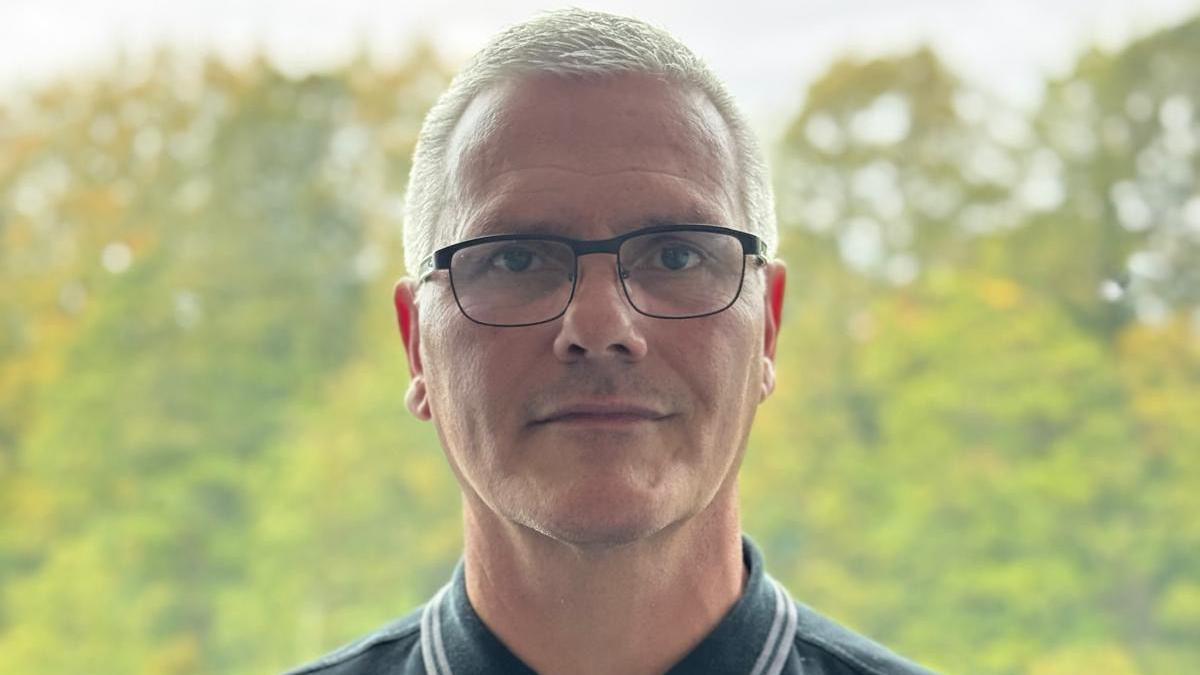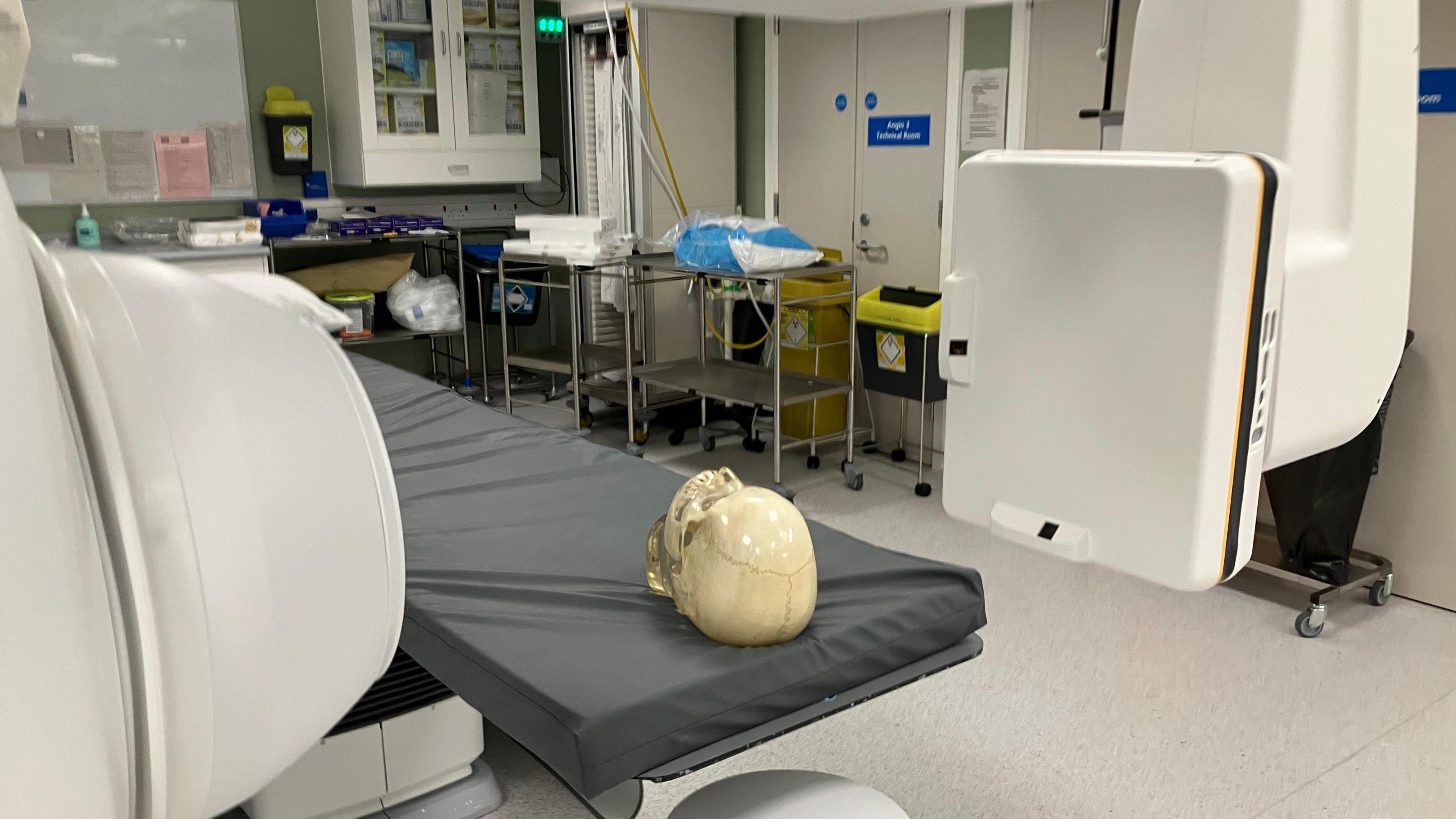Stroke service goes 24/7 to help more patients

Paul Haywood said his life was saved by a procedure for stroke patients which restores blood flow to the brain
- Published
A service to provide urgent treatment to people who have suffered a severe stroke will run 24 hours a day, seven days a week, in a bid to save more lives.
The service at the Queen's Medical Centre (QMC) in Nottingham offers a mechanical thrombectomy - a procedure which restores blood flow to the brain.
Paul Haywood, from Leicestershire, who underwent the procedure in 2023 said it saved his life.
Nottingham University Hospitals NHS Trust (NUH), which runs the QMC, said making the service available round the clock was a "huge step forward for stroke care across the East Midlands".
'It's a lifesaver'
Mr Haywood was rushed to the QMC from the Leicester Royal Infirmary in 2023, after doctors suspected he had suffered a stroke, days after he suffered a transient ischemic attack, also known as a mini stroke.
"My wife took one look at me and realised I wasn't there, basically. I could hear what was happening, but I couldn't respond," he said.
It was not long before he arrived at the emergency department in Nottingham.
"I can remember being whizzed through the emergency department and the operating staff were there waiting for me," he said.
"The mask went on and the next thing I remember was my wife, brother and daughters being there.
Mr Haywood was back at work four months after having the mechanical thrombectomy, which he credits - alongside his wife, Paula, hospital staff and the doctor in Leicester - with saving his life.
He was left partially blind in his left eye but said "it could have been a lot worse".
"That's a small price to pay for being able to have a normal life," he said.
"If this is the treatment that's needed, then the quicker the better. It's brilliant and it's a lifesaver."

The mechanical thrombectomy removes blood clots from arteries in the brain to restore blood flow
The service, which launched in 2016 and sees about 200 patients a year from Lincoln, Leicester, Derby and Mansfield, has received £13.5m of capital funding and is now able to provide the treatment 24/7.
According to the trust, the procedure is only suitable for about 5-10% patients presenting with a stroke but the benefits are "life-changing".
For every three to four patients treated, one will avoid lifelong disability, the trust said.
Dr Kailash Krishnan, head of stroke medicine at NUH, said: "Being able to offer Mr Haywood this groundbreaking treatment in a timely manner for a stroke subtype, which otherwise would have been fatal or significantly disabling, was highly rewarding."
Sarah Mack, head of nursing and professions added: "More stroke patients will have significantly reduced disabled outcomes, with some even seeing near full recovery immediately after having a stroke."
Get in touch
Tell us which stories we should cover in Nottingham
Follow BBC Nottingham on Facebook, external, on X, external, or on Instagram, external. Send your story ideas to eastmidsnews@bbc.co.uk, external or via WhatsApp, external on 0808 100 2210.